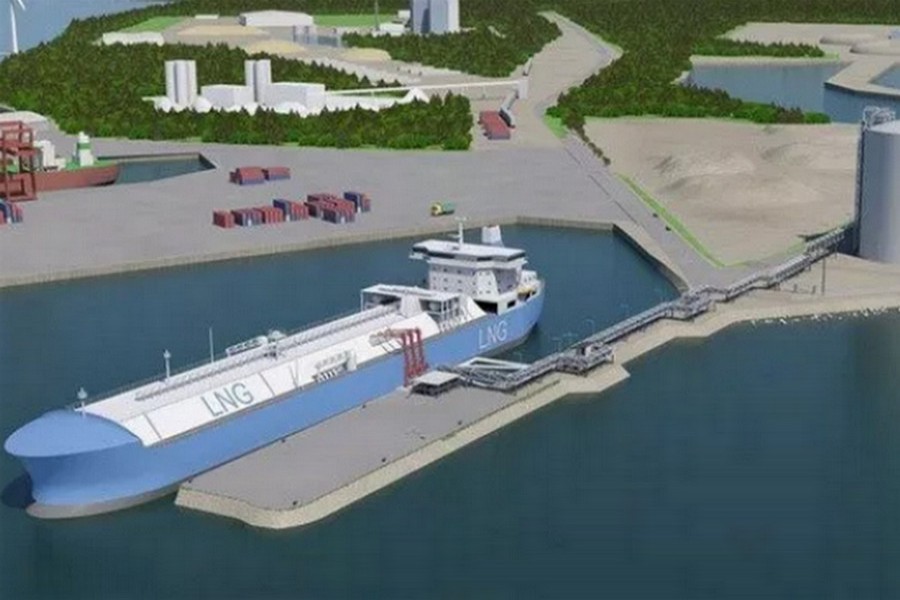Tokyo Gas completes feasibility study for Bangladesh’s first land-based LNG terminal

Published :
Updated :

Japanese energy major Tokyo Gas Co Ltd has completed a full feasibility study for Bangladesh's first land-based LNG-import terminal at Matarbari Island in the Bay of Bengal, raising hopes of finally advancing a project that has faced years of delay.
The study covers detailed technical assessments and the preparation of key documents, including bid packages and requests for proposals (RfPs), for a terminal with an annual capacity of 7.5 million tonnes (Mtpa).
Appointed as consultant in 2020, Tokyo Gas has now delivered on its mandate, according to industry sources.
However, the project's earlier tendering effort in 2019 was derailed by procedural flaws under the now-defunct Quick Enhancement of Electricity and Energy Supply (Special Provision) Act, which bypassed competitive bidding and raised concerns about transparency.
The interim government later cancelled that process, forcing Petrobangla to reset its approach.
Petrobangla has since revived efforts to construct a 1,000 million cubic feet per day (mmcfd) land-based LNG terminal at Matarbari in Cox's Bazar, Petrobangla Chairman Md Rezanur Rahman confirmed to The Financial Express on Thursday.
"This project is now a priority," Rahman said, stressing the strategic value of permanent LNG infrastructure.
Despite the renewed commitment, insiders note that Petrobangla has yet to issue an open tender or initiate government-to-government talks with potential state-backed developers.
In 2019, Rupantarita Prakritik Gas Company Ltd (RPGCL) shortlisted eight firms through an international tender that invited expressions of interest (EoIs).
RfPs were issued to these companies in March 2021 with a six-month submission deadline, but repeated extensions pushed the process back until it was ultimately abandoned.
The project has also been slowed by land acquisition challenges. In the meantime, Bangladesh has relied on Floating Storage and Regasification Units (FSRUs) to meet surging LNG demand.
The land-based terminal concept was first floated more than a decade ago, but the government faced difficulties securing suitable land.
Over the past six years, the Energy and Mineral Resources Division (EMRD) under the Ministry of Power, Energy and Mineral Resources (MPEMR) approved three FSRUs and signed a term sheet for a fourth.
A senior EMRD official noted that the plan for the Matarbari terminal dates back to 2014, when the first FSRU was also proposed. While the FSRU contract for Moheshkhali Island was signed in July 2016, land for Matarbari remained unavailable.
After prolonged negotiations, the MPEMR recently decided to purchase "ash land" owned by Coal Power Generation Company Bangladesh Ltd (CPGCBL) for about Tk 30 billion.
However, the transfer is still pending due to unresolved payment issues.
The Matarbari LNG terminal is expected to be developed under a Build-Own-Operate-Transfer (BOOT) model, under which the contractor will own and operate the facility for 20 years before handing it over to the government.
Tokyo Gas will continue to advise on bid evaluation and contractor selection.
The eight shortlisted firms that received RfPs
include: Mitsui & Co Ltd; Japan Investment Corporation for Matarbari Regas Terminal (a joint venture of Inpex Corporation, Sojitz Corporation, Kyushu Electric Power Co and Unique Hotel & Resorts Ltd); a joint venture of Total Gas Electric Holdings and Total Gas and Power Business Services (France); Petronet LNG Ltd; a joint venture of Qatar Petroleum LNG Services and ExxonMobil of Qatar; a joint venture of Summit Corporation Ltd, Mitsubishi Corporation and JERA Co Inc; a joint venture of United Enterprises & Co Ltd, Posco International Corp and Korea Gas Corporation; and a consortium of Sumitomo Corporation and Chugoku Electric Power Co Inc.
Currently, Bangladesh operates two FSRUs-one by Summit Group and the other by US-based Excelerate Energy-with a combined regasification capacity of about 1,100 mmcfd.
Energy expert Professor M Tamim, Vice Chancellor of Independent University, Bangladesh, stressed the urgency of a land-based facility.
"It will be more cost-effective and ensure stable regasification," he said. "FSRUs are only a temporary measure; a land-based terminal is the long-term solution."
azizjst@yahoo.com


 For all latest news, follow The Financial Express Google News channel.
For all latest news, follow The Financial Express Google News channel.